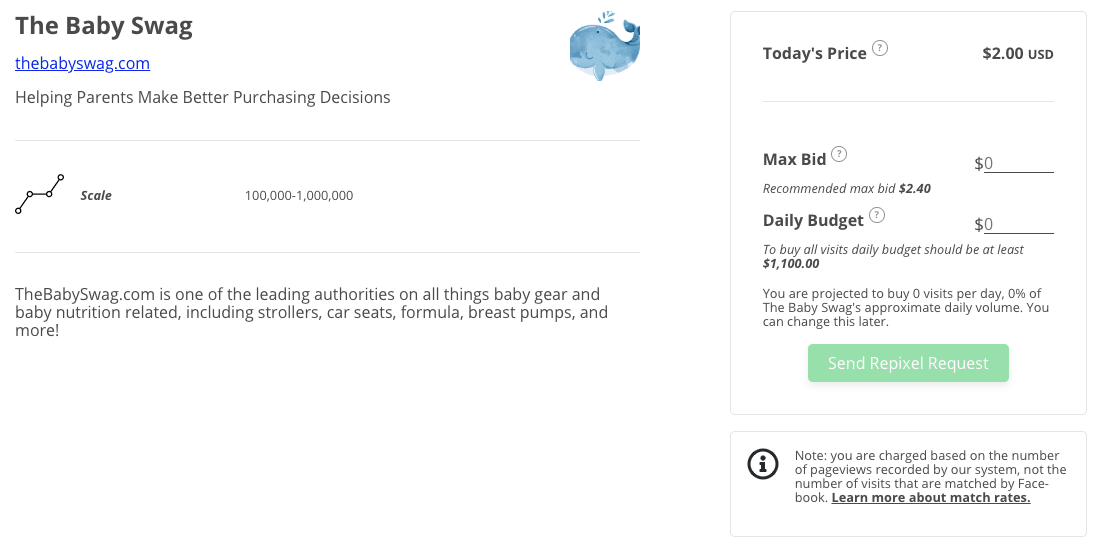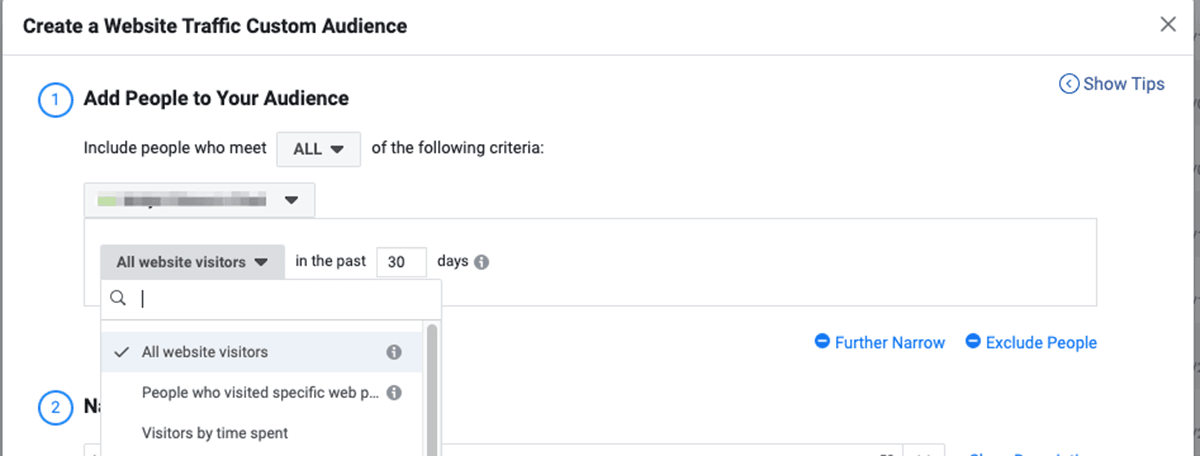Improve Your Timing & Scale in a Niche Market once you hit full impression share by Retargeting Someone Else’s Website
Generally speaking, setting up Facebook Ad campaigns for a product with mass appeal that is traditionally thought of as an “impulse buy” is more straightforward than a really niche one, at least when it comes to building out audiences. For example, if you sold fidget spinners in 2018, nearly half of the population was (or could have been) in the market for your product at any given time, even if they didn’t realize it. You could throw any ad out into the millennial or gen z age bracket and there was a decent chance it would land on interested eyes.
But if you sell something really niche, let’s say children’s books to new parents, you have to target a very specific part of the population at a very specific time. And with Facebook’s recent habit of slimming down it’s targeting functionality, getting the right ad in front of the right person is increasingly difficult if you operate in a niche space, leading to a lot of wasted impressions, and as a result, a lot of wasted ad spend.
Q2 hedge fund letters, conference, scoops etc
Advertisers with really niche products have historically relied heavily on Search networks like Google Ads where there’s greater intent. After all, if someone is actively searching for baby books, and you sell baby books, it should be a quick win. And it is. But the challenge that most advertisers with niche products will run into on Google is scalability...there are only so many people typing “baby books” into search engines that you can show an ad to, and eventually, you’re likely to find yourself at a near 100% impression share on your top-performing keywords.
Once advertisers hit that 100% impression share, the next logical progression is Facebook & Instagram retargeting, and that will stick for most businesses. After all, if someone was just on your website vetting your product, they’re clearly interested enough in what you have to offer or they wouldn’t be there, so serving them an ad makes perfect sense. But over time, most marketers find that Facebook retargeting is limited in scale just like Google search. As nice as it would be to just increase your ad budget & sales, there are only so many people who have visited your website, and assuming you want to grow your business faster than recycling through your existing users, you’ll need to also reach people who haven’t been to your website.
Retargeting Different Sites
That’s where leveraging a tool like Repixel comes in, which connects you with other website’s and allows you to retarget them, solving the issue or both timing and scalability.
The backbone of Repixel is a marketplace where people who own websites post a “listing” indicating that they’re willing to let advertisers retarget their visitors. These site owners name their price, and then advertisers can browse the “menu” to find non-competitive sites that share their customer base that they’d like to retarget. For example, in the case of the company that sells baby books, their advertising department might want to retarget a site like The Baby Swag, an authority on baby products for new parents. And unlike the advertiser’s own website which might be just getting off the ground, The Baby Swag has millions of monthly visitors, making the scale near limitless, with an audience as qualified as your own.
Once you’ve requested to repixel a website, a brand new Facebook pixel will be shared with your ads account, and from there, you can set up all of the custom audience options available within Facebook’s UI. For example, you could serve a Facebook ad to people who visited a specific part of the site owner’s website, or visitors who have been on the site for a certain amount of time, or people who have been to the website in the last 30 days, and you can even build a lookalike audience just as you would with your own pixel.
The Results?
The end result of repixeling is a win-win-win. Advertisers can improve their return on ad spend (ROAS) by serving much more qualified ads to a very relevant audience, Facebook users are likely to see more relevant ads, and site owners get a new monetization stream, getting paid by advertisers for the privilege of letting them tag their visitors. Interested in trying Repixel for yourself? You can give it a spin here.









